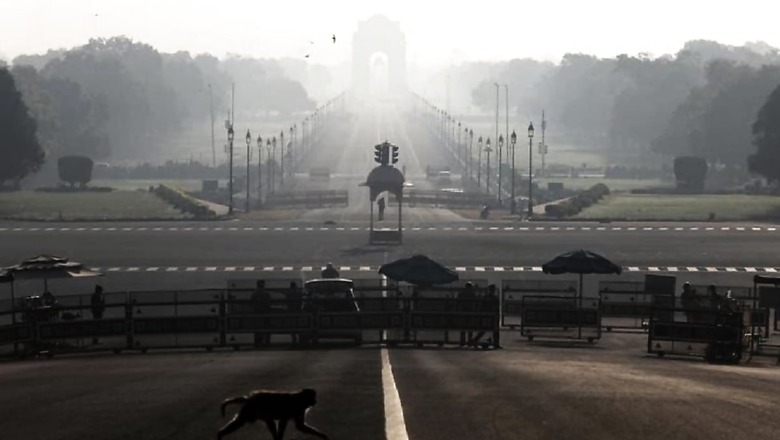
views
The national capital recorded its air quality in the 'very poor' category on Friday and it was likely to become 'severe' on Diwali night, according to government agencies. Delhi recorded a 24-hour average air quality index (AQI) of 339. It was 314 on Thursday.
The neighbouring cities of Faridabad (319), Ghaziabad (382), Noida (337), Greater Noida (336) and Gurgaon (324), which fall in the National Capital Region (NCR), also recorded their AQI in the "very poor" category. The India Meteorological Department (IMD) said a fresh western disturbance was likely to increase the wind speed and improve the air quality in Delhi-NCR post-Diwali.
Light rain is likely to occur on Sunday under the influence of a western disturbance. It remains to be seen if it is enough to wash away pollutants, Kuldeep Srivastava, the head of the IMD's regional forecasting centre said. "However, Delhi-NCR's air quality is likely to improve post-Diwali due to an increase in the wind speed. On Sunday, the maximum wind speed is expected to be around 12 to 15 kilometers per hour," he said.
V K Soni, the head of the IMD's environment research centre, said calm winds and firecrackers emissions may push the air quality to the 'severe' zone on Diwali night. Wind speed is expected to pick up thereafter and the wind direction will be east-southeasterly. There will be a significant improvement in air quality by November 16, he said.
The Ministry of Earth Sciences' air quality monitor, SAFAR, said the PM 2.5 concentration in Delhi on Diwali is likely to be the "lowest" in the last four years if no firecrackers are burnt. It said pollution levels in Delhi during the Diwali period are likely to remain in the higher end of the 'very poor' category in the absence of emissions due to fireworks.
Stubble burning-induced impact on AQI is expected to increase from "negligible to moderate" in the next two days, SAFAR said, adding the biomass plume transport-level winds have become northwesterly and predicted to continue until Saturday which is not good. Fire-related intrusion along with stagnant surface winds is acting adversely. Hence, AQI is predicted to remain in the higher end of the "very poor" category to the lower end of the "severe" on Diwali night, it said.
A spike in PM 2.5 in the wee hours of November 15 is likely in case of fire-related emissions, it said. The Central Pollution Control Board (CPCB) had on Wednesday ordered closure of hot mix plants and stone crushers in Delhi-NCR till November 17 in view of a likely increase in pollution levels during the festive season.
It also asked the governments of Punjab and Haryana to take immediate stringent actions to curb stubble burning and authorities in Delhi-NCR to strictly check biomass burning.
Read all the Latest News, Breaking News and Coronavirus News here



















Comments
0 comment